- Home
- Quizzes
- My Quiz Activity
- Newsletters
- Sports Betting
- MY FAVORITES
- Add Sports/Teams
- SPORTS
-
NFL
- NFL Home
- Arizona Cardinals
- Atlanta Falcons
- Baltimore Ravens
- Buffalo Bills
- Carolina Panthers
- Chicago Bears
- Cincinnati Bengals
- Cleveland Browns
- Dallas Cowboys
- Denver Broncos
- Detroit Lions
- Green Bay Packers
- Houston Texans
- Indianapolis Colts
- Jacksonville Jaguars
- Kansas City Chiefs
- Las Vegas Raiders
- Los Angeles Chargers
- Los Angeles Rams
- Miami Dolphins
- Minnesota Vikings
- New England Patriots
- New Orleans Saints
- New York Jets
- New York Giants
- Philadelphia Eagles
- Pittsburgh Steelers
- San Francisco 49ers
- Seattle Seahawks
- Tampa Bay Buccaneers
- Tennessee Titans
- Washington Commanders
-
MLB
- MLB Home
- Arizona Diamondbacks
- Atlanta Braves
- Baltimore Orioles
- Boston Red Sox
- Chicago White Sox
- Chicago Cubs
- Cincinnati Reds
- Cleveland Guardians
- Colorado Rockies
- Detroit Tigers
- Houston Astros
- Kansas City Royals
- Los Angeles Angels
- Los Angeles Dodgers
- Miami Marlins
- Milwaukee Brewers
- Minnesota Twins
- New York Yankees
- New York Mets
- Oakland Athletics
- Philadelphia Phillies
- Pittsburgh Pirates
- San Diego Padres
- San Francisco Giants
- Seattle Mariners
- St. Louis Cardinals
- Tampa Bay Rays
- Texas Rangers
- Toronto Blue Jays
- Washington Nationals
-
NBA
- NBA Home
- Atlanta Hawks
- Boston Celtics
- Brooklyn Nets
- Charlotte Hornets
- Chicago Bulls
- Cleveland Cavaliers
- Dallas Mavericks
- Denver Nuggets
- Detroit Pistons
- Golden State Warriors
- Houston Rockets
- Indiana Pacers
- Los Angeles Clippers
- Los Angeles Lakers
- Memphis Grizzlies
- Miami Heat
- Milwaukee Bucks
- Minnesota Timberwolves
- New Orleans Pelicans
- New York Knicks
- Oklahoma City Thunder
- Orlando Magic
- Philadelphia 76ers
- Phoenix Suns
- Portland Trail Blazers
- Sacramento Kings
- San Antonio Spurs
- Toronto Raptors
- Utah Jazz
- Washington Wizards
-
NHL
- NHL Home
- Anaheim Ducks
- Arizona Coyotes
- Boston Bruins
- Buffalo Sabres
- Calgary Flames
- Carolina Hurricanes
- Chicago Blackhawks
- Colorado Avalanche
- Columbus Blue Jackets
- Dallas Stars
- Detroit Red Wings
- Edmonton Oilers
- Florida Panthers
- Los Angeles Kings
- Minnesota Wild
- Montreal Canadiens
- Nashville Predators
- New Jersey Devils
- New York Islanders
- New York Rangers
- Ottawa Senators
- Philadelphia Flyers
- Pittsburgh Penguins
- San Jose Sharks
- Seattle Kraken
- St. Louis Blues
- Tampa Bay Lightning
- Toronto Maple Leafs
- Vancouver Canucks
- Vegas Golden Knights
- Washington Capitals
- Winnipeg Jets
- NCAAF
- NCAAM
- Boxing
- Entertainment
- Lifestyle
- Golf
- MMA
- Soccer
- Tennis
- Wrestling
- More Sports
- RESOURCES
- My Account
- YB on Facebook
- YB on Twitter
- YB on Flipboard
- Contact Us
- Privacy Policy
- Terms of Service
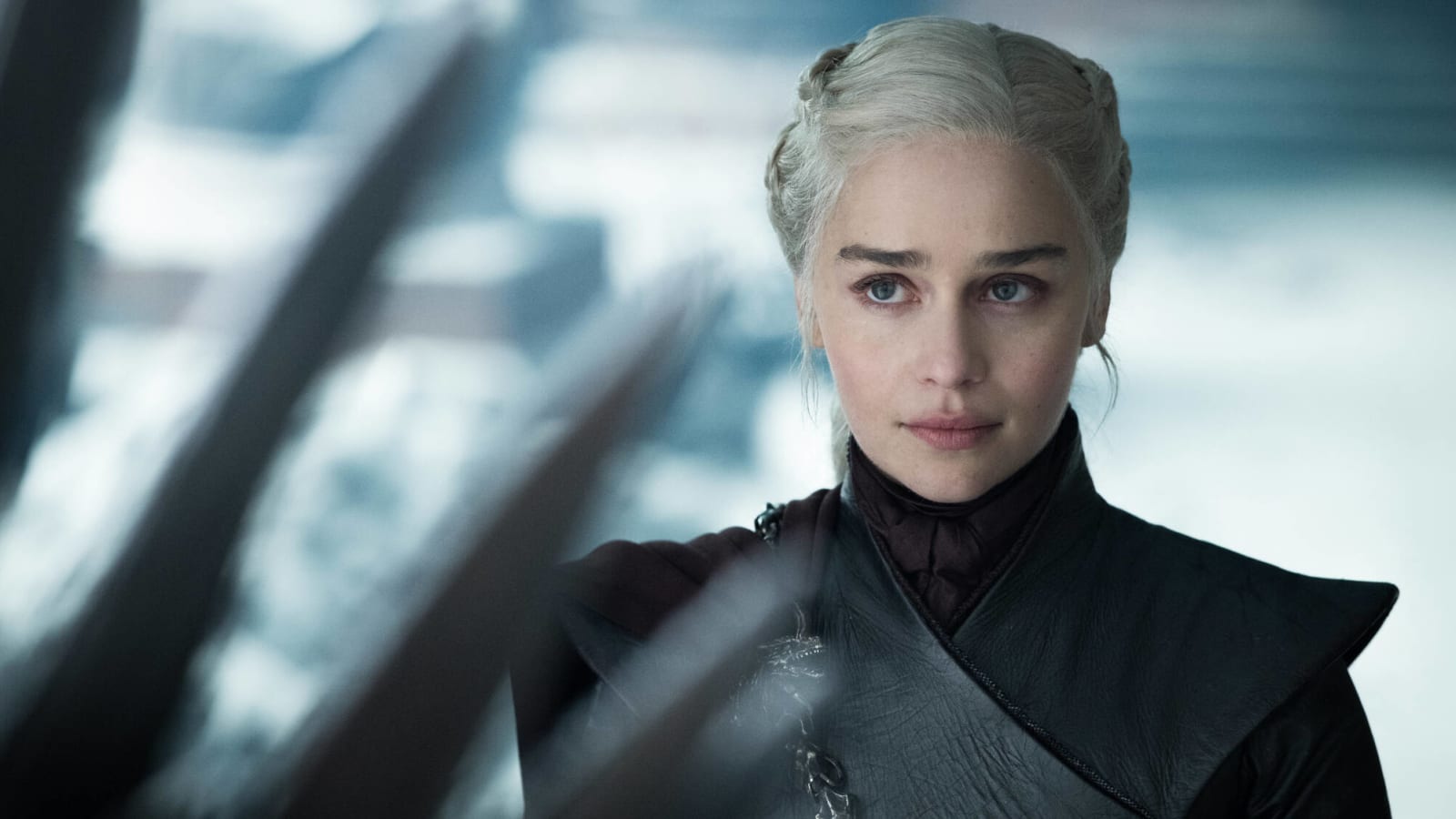
While many audiences tend to think of stories in terms of heroes and villains — enforcing a strict binary of good and evil — recent years have seen a proliferation of antiheroes. These characters misbehave but are nevertheless compelling and are often the center of their own stories. Though much attention has been paid to male antiheroes like Walter White of Breaking Bad and Tony Soprano of The Sopranos, it’s also necessary to draw attention to the many formidable antiheroines who appeared on both the big and small screens. These formidable women reveal the extent to which there can be a lot of pleasure in thinking and acting outside the box of patriarchy.
Thelma and Louise

Ridley Scott's Thelma and Louise remains one of the director's finest works, and much of the film's appeal stems from the remarkable performances of Geena Davis and Susan Sarandon as the title characters. Even though they are technically criminals — having shot a man after he attempted to räpe Thelma — they are the types of characters that the audience is not only led to cheer for but also to care deeply about, even as they get further and further along the road to outlawry. There's palpable chemistry between Davis and Sarandon, and the film remains a beloved mix of buddy comedy and road trip movie, as well as a testament to female friendship.
Catwoman
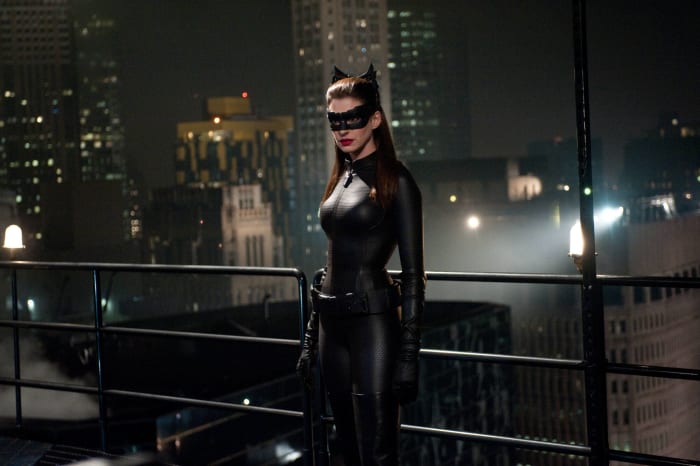
Though Batman has faced many notable villains in his long career, arguably one of the most compelling and seductive has been Selina Kyle, also known as Catwoman. In her various screen incarnations, she has been portrayed by many notable actresses, including Halle Berry, Eartha Kitt, Julie Newmar, Anne Hathaway, and Michelle Pfeiffer. Though originally a straightforward villain, her recent iterations have sought to convey her as an antiheroine, with all the moral complexity this implies. Though capable of evil, of course, she does seem to have a certain ethical code that justifies her actions, even if it sometimes puts her at odds with Batman.
Scarlet Witch/Wanda Maximoff

Elizabeth Olsen is quite simply spellbinding as Wanda Maximoff/Scarlet Witch in The Marvel Cinematic Universe. Her character arc has been something to behold, going from a victim of violence to a superhero to a perpetrator of violence herself. Even though she is capable of acts of tremendous brutality, whether it’s taking the residents of an entire village captive so she can live out an extended sitcom fantasy with Vision or ruthlessly slaughtering anyone who stands in the way of her reuniting with her children, there is still something soulful and human to Wanda/Scarlet Witch. She exists in a fraught space, and while her actions are evil, her heart, it seems, is still good.
Harley Quinn
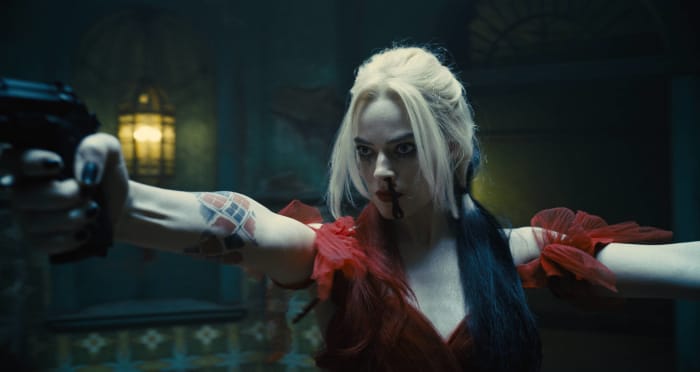
Margot Robbie has slowly but surely built a formidable reputation for herself as a phenomenally talented actress, and one of her best roles is as Harley Quinn in the DC Extended Universe. Her Quinn is deliciously campy and over-the-top, and while she begins as something of a villain, she soon becomes the hero of her own story, particularly in the film Birds of Prey. There’s an infectious enthusiasm about Quinn as she sets out to establish a life and an identity for herself that is independent of the Joker. While she truly sings in Birds of Prey, she also has notable roles in both Suıcide Squad and The Suıcide Squad.
Patty Hewes
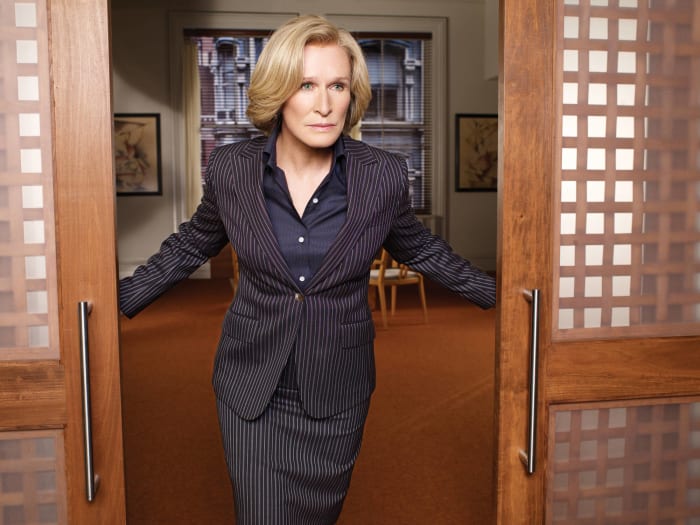
Glenn Close has given some of her most memorable performances on the big screen, but in Damages, she also proved just as adept at television. In the series, she plays the attorney Patty Hewes, who is ruthless and corrupt. However, there’s also no denying that she has one of the sharpest legal minds of her generation, and she is particularly adept at navigating the largely patriarchal world of the legal profession. The brilliance of the character — and of Close’s portrayal — is her ability to make Hewes into someone whose ultimate actions (taking down bullies) is laudable, even if her methods are often reprehensible.
Alicia Florrick
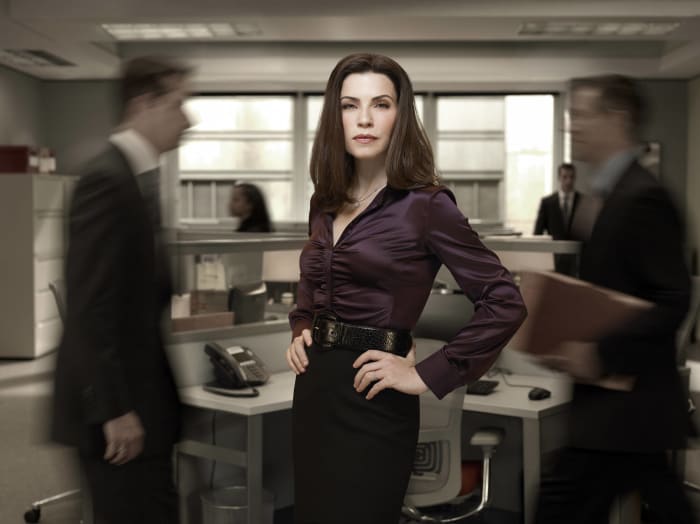
When the long-running drama The Good Wife begins, Julianna Margulies’ Alicia Florrick has to decide whether to stay with her philandering husband or strike out on her own. Ultimately, she grows and changes, becoming particularly concerned with accruing more power. She ultimately proves to be a ruthless operator, and she even goes so far as to use her power against others, a neat inversion of her formerly powerless position. What’s more, she does it all while remaining impeccably dressed, ready to take on the world and look great.
Deborah Vance

Jean Smart is mesmerizing as Deborah Vance, a fading comedian who takes on an assistant in the Max series Hacks. Sharp-tongued and sometimes scathing, she is a woman who has had to succeed in the deeply misogynist world of stand-up comedy. Smart, however, allows the viewer to see the hurt and the struggle that lurks behind Vance's brittle exterior. Indeed, one can't help but admire Vance's success, just as one can't help but mourn her defeats at the men who still refuse to take her seriously. It's one of the finest performances of Smart's career, showcasing her talent to bring out all her character's humanity.
Cassie Thomas
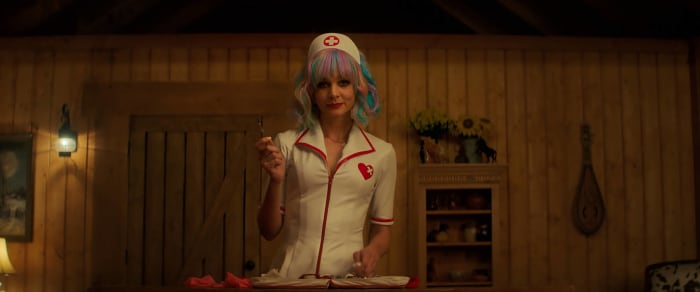
Carey Mulligan gives one of her finest performances in Emerald Fennell’s Promising Young Woman, in which she plays Cassie Thomas, a young woman determined to gain vengeance for her friend. She is relentless in her pursuit, and some of her methods are deeply morally questionable. Mulligan’s gift as a performer keeps Cassie from ever sliding entirely into the realm of villain, especially since she is, at the end of the day, just doing her part to right a grievous injustice. Like all good antiheroes, she threads the needle between sympathy and enmity, and therein lies the brilliance of Mulligan’s performance.
Annalise Keating

Viola Davis is one of those actresses who excels in roles big and small, and her performance as Annalise Keating in the legal soap How to Get Away with Murder will surely be seen as one of her all-time best. Annalise is the ultimate morally compromised antihero who commands the camera’s attention. Sometimes, Annalise is morally reprehensible, but Davis’ undeniable charisma and power as a star ensures that it’s impossible to ever truly hate her. At the same time, there is no doubt that she is one of the most manipulative antiheroes, able to get others to do her bidding. It’s a truly unforgettable role.
Maleficent
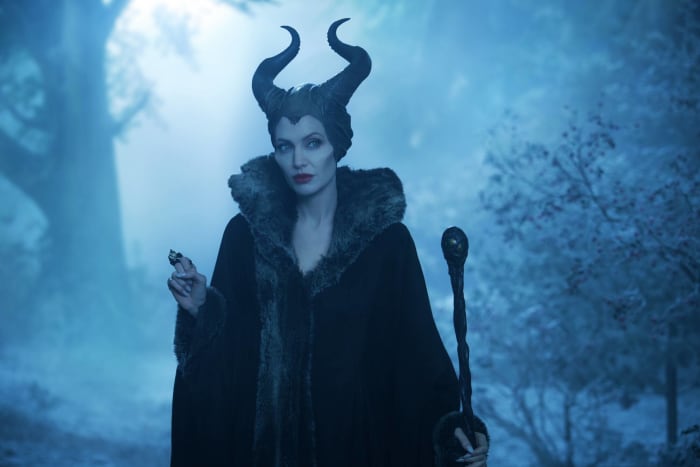
Maleficent has long been one of the most beloved Disney villains, and with the 2014 film Maleficent, she finally got a wrenching backstory. Far from the malicious being she is shown to be in Sleeping Beauty, here she is instead someone whose own childhood innocence is taken away from her by a brutal and thoughtless human. While initially wanting to destroy Princess Aurora, she ultimately finds a way to love her. Thanks to Angelina Jolie’s magnetic charisma, Maleficent becomes more than just an embodiment of evil; instead, she is a woman with a bruised heart trying to find her way back to the light.
Sylvie

Tom Hiddleston’s Loki remains a compelling part of the MCU, and he truly blazed in his own series (which also bears his name). Even though Hiddleston’s character is the star, he also strikes up an extraordinary bond with one of his alternate selves, the variant known as Sylvia (portrayed by Sophia Di Martino). Like the original version of the character, she is very much an antihero, her actions often swerving into the unethical and the violent. Even so, there is a powerful magnetism to Di Martino’s performance, helped along by the strange chemistry that is always evident between herself and Hiddleston whenever they share the screen.
Amy Dunne

Rosamund Pike is one of her generation’s most talented actresses, able to capture compelling characters who often have very flexible moral compasses. Sometimes, her characters are truly reprehensible, including Amy Dunne of Gone Girl, who manages to concoct an entire scheme by which her husband is framed for her “disappearance.” Yes, what she does is unquestionably morally repugnant. Still, one also can’t help but respect her sheer brilliance and ruthlessness, and Pike imbues her with a phenomenal screen presence that cannot be denied. The viewer can’t help but find themselves compelled by her, even as they also feel some measure of repugnance.
Livia
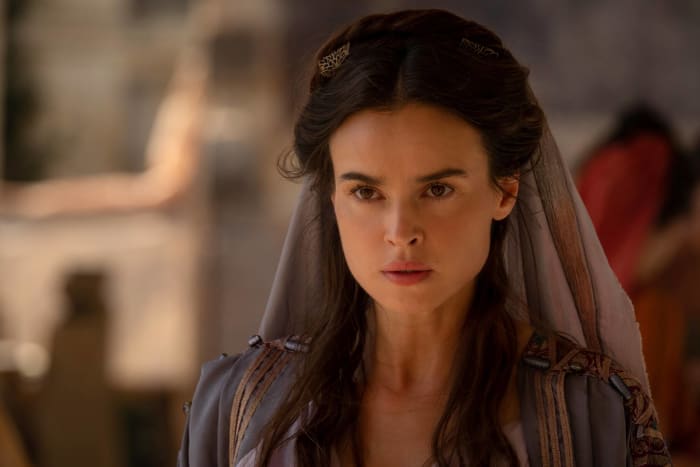
Livia Drusilla was one of the most formidable women of ancient Rome. Married to Augustus, she stayed by his side as he remade the state in his image. In the Livia series, she is a formidable political genius, able to manipulate and twist the threads of power for her own ends. As capably portrayed by Kasia Smutniak, this is a woman who, having endured the fall of the Roman Republic and her father's death, sets about trying to restore it by any means necessary. This is a woman who isn’t afraid to leave her enemies in the dust — or locked away in a cave to starve to death — and the audience can’t help but admire her tenacity and political subtlety.
Alicent Hightower
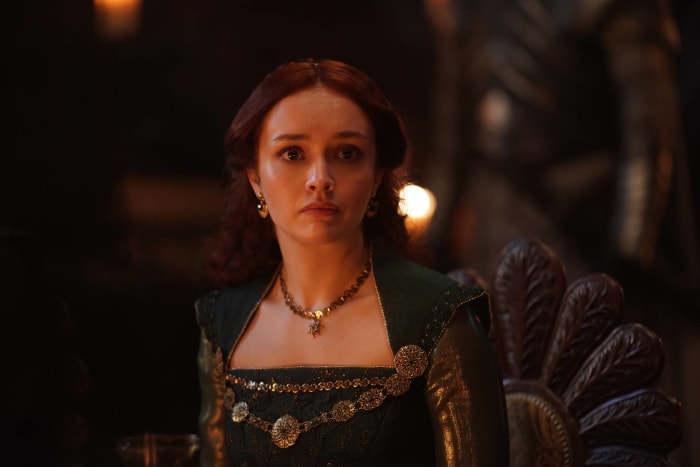
Throughout her life, Alicent Hightower of House of the Dragon is a pawn in the hands of others, whether it’s her father, Otto, or her husband, Viserys. This allows the viewer to sympathize with her, even when she manipulates her son into seizing the throne, which has already been promised to her former best friend and childhood companion, Rhaenyra. She might end up being as ruthless as any of the members of the Targaryen family, but her actions are at least understandable. After all, if the Iron Throne does pass into the hands of Rhaneyra, it would probably mean the death of herself and her family. Confronted with such a truth, one can hardly blame her for taking the throne, regardless of the morality of such an action.
Lee Israel
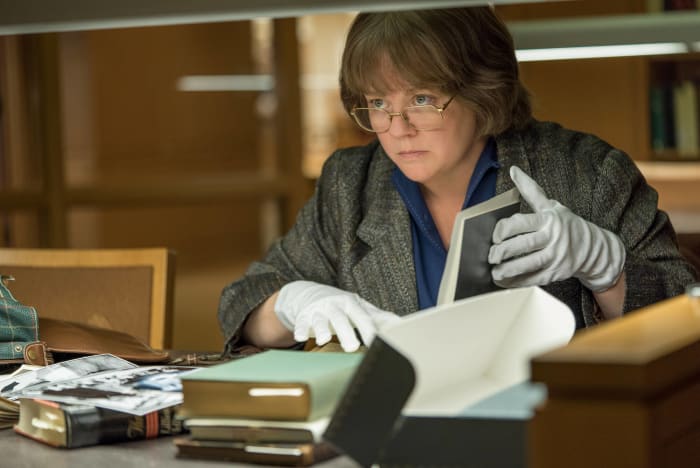
Melissa McCarthy might be best known for her comedy roles, but she has repeatedly demonstrated phenomenal dramatic skills. In Can You Ever Forgive Me?, she plays noted literary fraudster Lee Israel, a struggling writer who forged several letters from noted authors and sold them as if they were authentic. McCarthy imbues Israel with a rich and emotionally complex humanity, rendering her into a figure that is both tragic and yet undeniably gifted when it comes to her deception. Because this is McCarthy, the audience ultimately comes to love Israel, even as it also condemns her deception.
Rhaenyra Targaryen

Taking place many years before Game of Thrones, House of the Dragon is likewise about the dynastic conflicts of Westeros, in this case, the interfamily conflict known as the Dance of the Dragons. At the heart of this war is Rhaenyra Targaryen, who aims to make sure she is the one who ends up sitting on the Iron Throne. Played as an adult by Emma D’Arcy, Rhaenyra is slowly forged into a weapon of ruthlessness by the vicissitudes of war, including the death of her father and son. She may not always be likable or particularly sympathetic, but there’s no question Rhaneyra is still a dynamic personality who captures the viewer’s attention from the beginning.
Liandrin
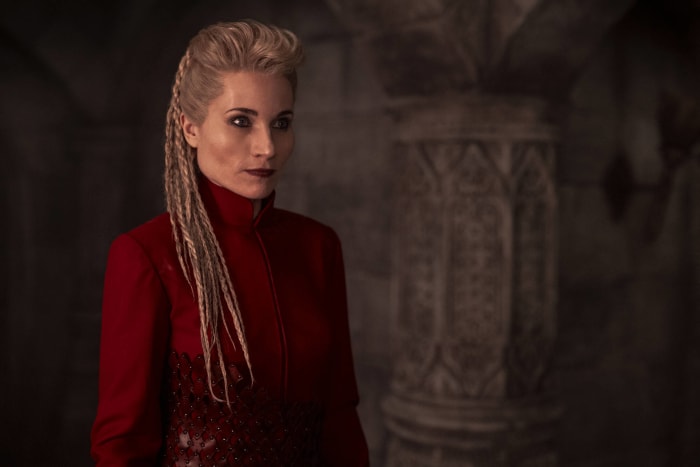
The Amazon series The Wheel of Time adapts the series of the same name by Robert Jordan, and though most of the action focuses on Rand and the other young people from Emond’s Field, a key player is Liandrin, a member of the powerful organization of magic-wielders known as the Aes Sedai. Though it’s revealed she is a member of the sinister Black Ajah — sworn to serve the Dark One — Liandrin is nevertheless something of a sympathetic character. As the series sheds more light on her life and emotional complexity, it shows her to be far more than just the villain she appears to be in the novels.
Cersei Lannister
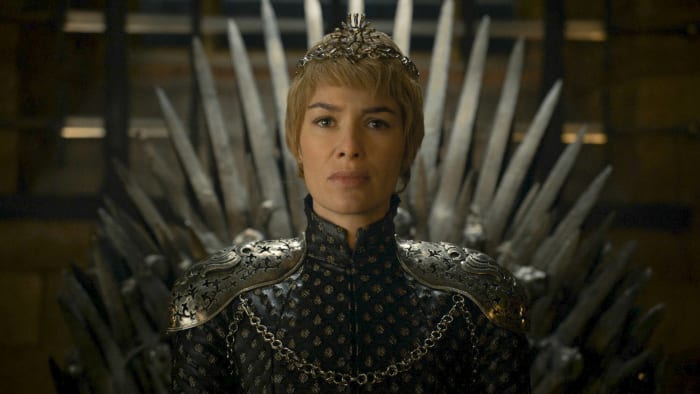
From the very beginning of Game of Thrones, Cersei Lannister was the quintessential antiheroine. Cold and calculating, she could scheme and manipulate with the best of them, and she was capable of acts of great brutality, as when she destroyed the entire Great Sept of Baelor to rid herself of her enemies. However, like all antiheroes, she had something of a moral compass in that she was totally committed to her children, even a monster like Joffrey. The bitter irony was that, in the end, she lost all of them and ended up buried in the rubble of the Red Keep.
Marla Grayson
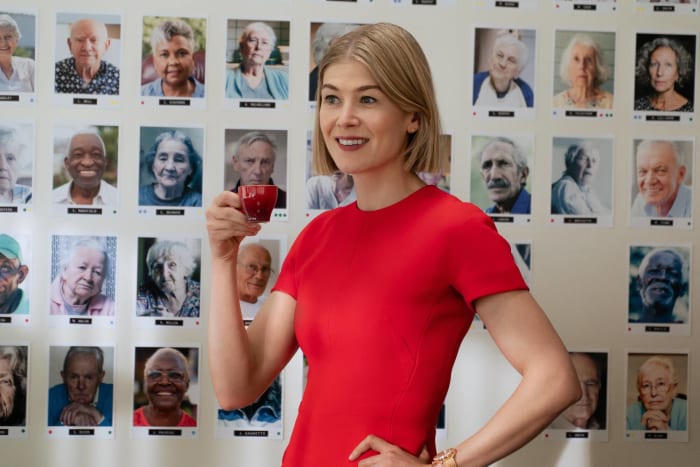
Rosamund Pike more than delivers in I Care a Lot, in which she portrays Marla Grayson, a lesbian who dupes older people out of their money. When she unwittingly runs her scheme on the mother of a renowned gangster, however, things quickly go south. However, time and again during the film, Marla shows herself to be not just brilliant and cunning but also a survivor, enduring physical tries that would utterly defeat a lesser character. She comes very close to achieving her dream of wealth and power, and while the viewer doesn’t necessarily like her, it’s impossible not to admire her.
Daenerys Targaryen

For almost the entirety of Game of Thrones, Daenerys Targaryen was the heroine, the exiled princess who would move heaven and earth to reclaim the throne that was rightfully hers. Along the way, however, she also showed herself to be more than a little bit of an antihero, particularly as she used brutal methods to exert her will on those around her. In the end, of course, this led to laying waste to King’s Landing on the back of her dragon Drogon, a fatal and terrifying reminder that she carries in her blood the madness that is so common to the Targaryen dynasty.
Thomas J. West III earned a PhD in film and screen studies from Syracuse University in 2018. His writing on film and TV has appeared at Screen Rant, Screenology, FanFare, Primetimer, Cinemania, and in a number of scholarly journals and edited collections. He co-hosts the Queens of the B's podcast and writes a regular newsletter, Omnivorous, on Substack. He is also an active member of GALECA, the Society of LGBTQ Entertainment Critics.
More must-reads:
Trending in Entertainment
Customize Your Newsletter
 +
+
Get the latest news and rumors, customized to your favorite sports and teams. Emailed daily. Always free!
Use of this website (including any and all parts and
components) constitutes your acceptance of these
Terms of Service and Privacy Policy.

